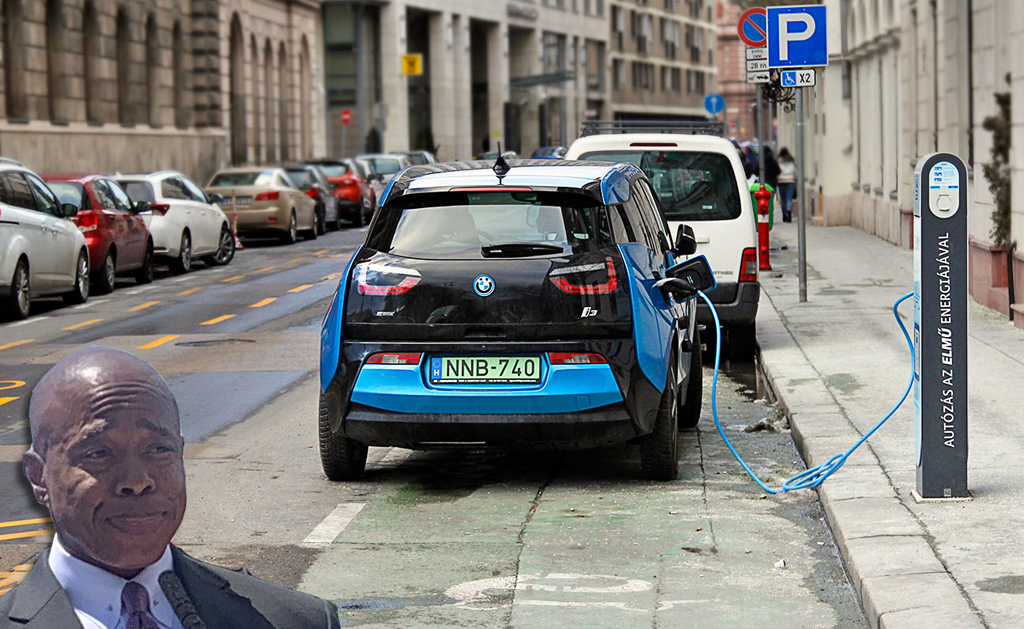A City Council hearing on electric vehicle charging focused more on the needs of delivery workers and other electric bike users than car drivers, even as the Adams administration plots the electric car charging future in ways that could narrow the city’s curbside options for generations, pols and advocates warned.
Council Member Gale Brewer (D-Upper West Side) set the tone by declaring that very few people in her tony district call her office to demand more charging stations for cars.
"Everybody’s complaining about the delivery workers [and how] we need charging stations for delivery workers,” Brewer said at the hearing on Friday, just days after a deadly inferno ripped through a Chinatown e-bike shop, killing four people. “It’s a bigger problem than the cars right now. I don't hear people calling me up, saying, ‘I need a charging station for my electric car.’”
As part of the city’s goals to cut carbon emissions in half by 2030 and achieve carbon neutrality within the transportation sector by 2050, the Adams administration will build so many fast chargers that every New Yorker will live within 2.5 miles of one by 2035 (up from the 65 percent who have such access today, according to PlaNYC: Getting Sustainability Done).
Adams's motivation is clear: transportation is the second leading source of the city’s greenhouse gas emissions (after all our buildings), comprising 28 percent of all emissions, according to the Department of Transportation — 84 percent of which comes from so-called light-duty vehicles, like people’s personal cars and SUVs.
A 2021 Electrify New York report declared that the city will need to install 40,000 public chargers across the five boroughs — and that 10,000 of them will be at the curb.
But that's "wrongheaded," given how the curbside lane has been transformed from the default space for car storage into space for outdoor dining, bike lanes, and, eventually, waste containerization, argued Jackson Chabot, the Director of Advocacy and Organizing at Open Plans (a sister organization of Streetsblog).
“Placing an EV charger in a curbside spot essentially ‘locks in’ that use of the curbside," Chabot said at the hearing. "It becomes a parking space only for EVs and due to the monetary investment of installing the charger, it becomes much more difficult to repurpose that segment of the curb for any other use."
Instead of dedicating curbside space to limiting car-charging infrastructure, the city should be more focused on getting people out of their cars — whether gas or electric powered — and into more wholly sustainable modes of transportation, testified Samir Lavingia, who is a member of Manhattan’s Community Board 5, but said he was speaking in a personal capacity.
“The future of cars is electric, but the future of New York City is not cars. We need to be incredibly cautious when it comes to curbside charging because that makes it harder to add bike lanes and other carbon-free forms of transportation,” said Lavingia. “We cannot and should not lock in this curbside use for the indefinite future. We should focus on e-bikes, e-scooters, other right-sized mobility options, buses and more instead of cars that move people inefficiently relative to the space they take up.”
But the city has still failed to install even one of the e-bike charging stations that the Adams administration announced with Sen. Charles Schumer in October 2022. (But NYCHA complexes will start to get e-bike chargers by the end of the year, Mayor Adams announced on Sunday.)
StreetsPAC’s Eric McClure said the focus needs to be on bikes, not cars.
“As a city, we’ve taken positive strides in recent years in democratizing the curb, building plazas and expanding sidewalks, implementing more loading zones, launching the Open Streets and Open Restaurants efforts, launching and expanding a bike-share system, and exploring curbside waste containerization,” testified McClure. “In developing vehicle-charging infrastructure, New York City must prioritize options that don’t re-privatize the curb for the sole benefit of car owners [by devoting] too-scarce sidewalk space to car chargers.”
Both Lavingia and Chabot say they support new legislation, introduced by Council Member Justin Brannan (D-Bay Ridge), that would require that 40 percent of all parking spaces in existing garages and lots support electric vehicle charging stations by 2030; and require that 60 percent of all parking spaces and lots in new garages be capable of supporting electric vehicle charging stations. The bill currently has 40 sponsors.






